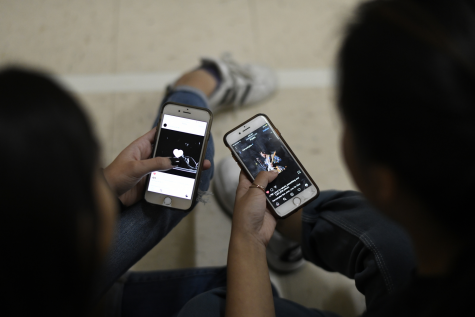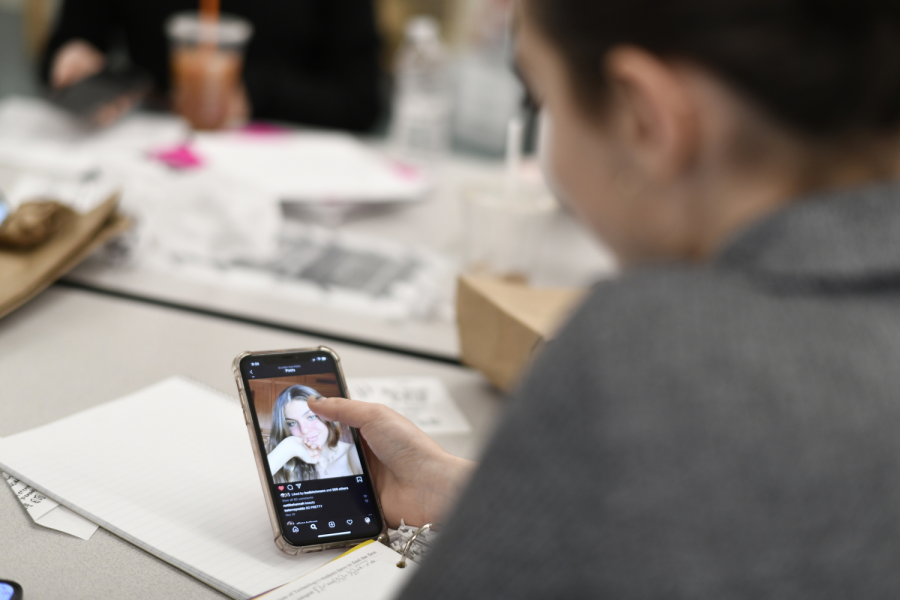Hidden Likes: A Toxic Feature or Depressurizing Amendment?
One of the ways Enza Jonas Giugni ’21 shows love and support for her friends is by contributing ‘likes’ on their Instagram posts.
With endless hashtags, fun filters, and hour-long videos on IGTV, Instagram has become a hub for sharing memories with friends, family and even strangers. Instagram has made a space for itself as a standout amongst the most utilized online networking platforms. Instagram is one of the most vital platforms of advanced marketing as it uses engaging visuals to send a message.
The platform is a vault of nearly 70 million photographs and recordings posted on a daily basis. With that, the platform provides an opportunity to gain popularity, stemming from the automatic promotion of posts with a significant number of likes. However, the Instagram everyone knows and loves is set to see some changes very soon. In April 2019, Adam Mosseri, the CEO of Instagram, told BuzzFeed News that removing likes was “about creating a less pressurized environment where people feel comfortable expressing themselves.” This initiative aims to eliminate the link with mental health issues and distress which hours of use on social media often lead to. In other words, the company is planning to hide likes in the U.S. in an attempt to make the platform less toxic for users all around.

Students in the school hallways scroll through Instagram to stay updated on the trending changes in the world.
At first sight, the intentions behind the initiative seem logical and potentially beneficial in the long-run, users would no longer put unnecessary stress into their posts out of concern for how much validation it would create. However, some Instagram users have strong feelings against this initiative.
We tend to categorize the impact of social media on personal character based on an individual’s commitment, or obsession, with it. For people like Islam who healthily use Instagram, its influence tends to be positive and even uplifting as the shared posts collect support and love from followers. Others go as far as to say that people tend to exaggerate the harm that Instagram likes cause society. “You’re either social media popular or you’re not. If you don’t like the app, don’t use it. There’s no reason people should be mad over a number. They’re just overly sensitive. ‘Likes’ mean nothing to me. I give them out for free. But when I want to see how many ‘likes’ people get on their posts, the number becomes useful. You can generalize a person by looking at their ‘likes,’” said Daniel Rendon, ’21. Rendon’s comments shed new light on the perspective of opposing hidden likes. Beyond the idea that likes may instill a positive feeling for those who are receiving the support, these numbers are also seen as a method of characterizing individuals. This feature goes beyond making Instagram simply a hub for sharing the best memories, but also a source of studying others.
Amid the controversy, many teenagers believe that Instagram knows what it’s doing, and is on the right path in creating positive change. We want followers to focus on what is shared, not how many ‘likes’ it gets. “I don’t think that removing ‘likes’ will substantially improve mental health, but it will reduce the clout around ‘likes’ which has always been a fancy of mine,” said Alina Hassan, ‘21.

Alina Hassan ’21 catches up with her friends by looking through their posts on Instagram, but she believes there’s natural toxicity with the presence of ‘likes’ in numbers.
This platform may expose issues to people that would otherwise be unaware, but it can also serve as a distraction from people’s lives and responsibilities. Social media creates a false sense of reality about what one’s life should be like through the ideals it promotes, and that isn’t healthy. Alongside the promotion of false reality, the obsession overseeing a specific number under your posts has driven users to set wrong priorities, so perhaps this new initiative is bound to produce some positive change. After all, the purpose behind this initiative is to make Instagram better; the company would not be risking its reputation and success if they weren’t adamant about fixing the pervasive problems with self-image.
As teenagers, we rely heavily on the number of hearts under our Instagram photos, so without a doubt, this new change is bound to better the lives of teenagers all around the world. Say goodbye to the “popularity contest” of ‘likes,’ and hello to a reborn outlet of good vibes and support.
“In my opinion, Instagram is both a toxic and a positive influence for its users. To some people, myself included, the number under a post instills a good feeling, but others might see it as destructive when people become obsessed with receiving a certain number of ‘likes,’” said Seikh Islam ’23.
Samama Moontaha is an Editor-in-Chief for ‘The Science Survey.’ She loves writing journalistic stories about the students at Bronx Science, bringing...











